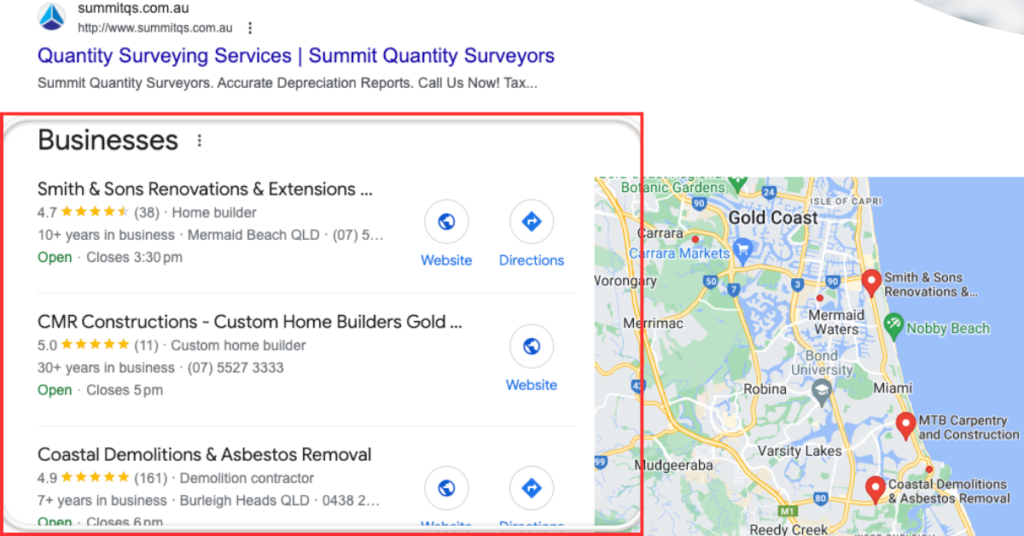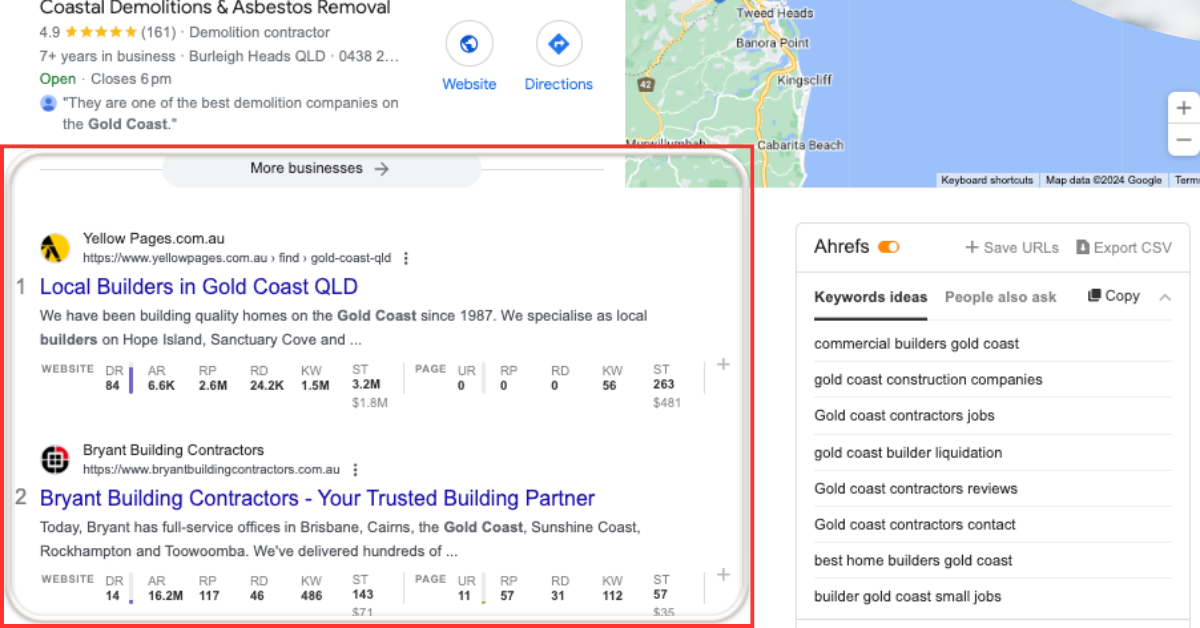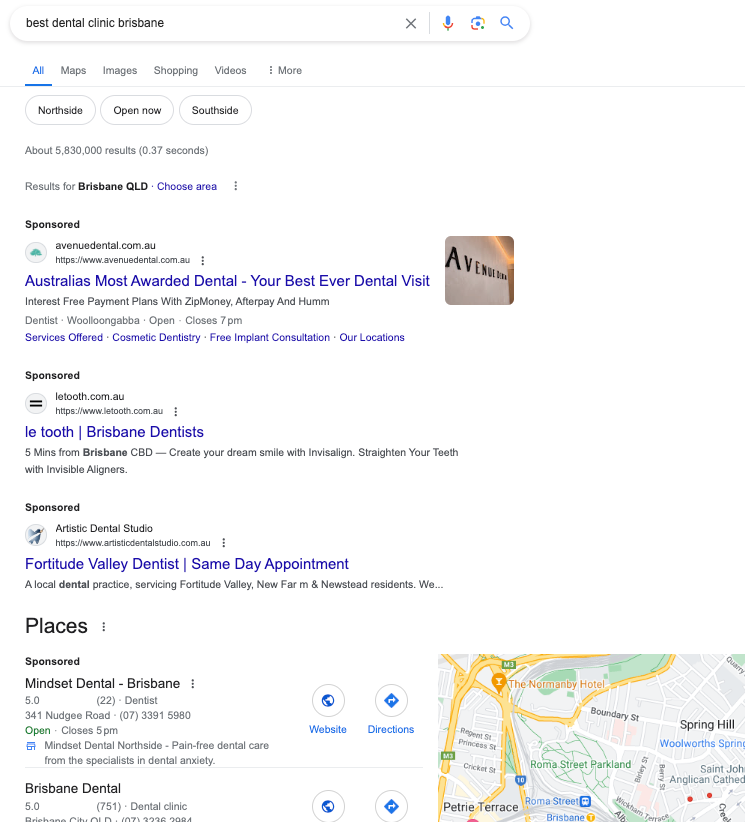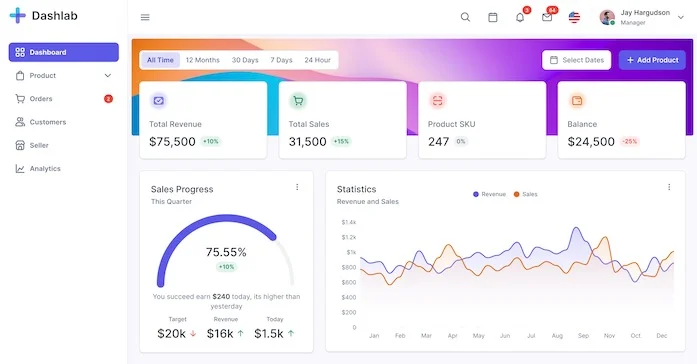Successful local businesses have a proven strategy for getting better online visibility by building citations. If you do it right, you can get your business to rank higher in SERPs and be more discoverable to potential customers.
Read more to learn about what local SEO citations are, their benefits, and how you can build them to grow your local presence.
What are citations in SEO?
Citations in SEO (also called local citations) refer to online mentions of your business on various platforms, predominantly in local business directories and other relevant websites. It typically includes essential information such as your business name, address, phone number (NAP) and sometimes additional details like website URL.
Think of it as an online reference that search engines use to validate and confirm the authenticity of your business.
Where do these citations appear? You can see them on local business directories like:
- Yellow Pages
- Yelp
- Google My Business (GMB)
- TripAdvisor
- review websites
- Social media channels, such as Facebook
You’ll also find them on industry-specific platforms. For example, a website like “CoffeeIsLife” might find interest in your coffee roastery business and mention your business on their site.
Why should you care about these SEO citations?
Always remember that Google and other search engines want to make it easy for searchers to explore the web and find the businesses they’re after.
They use these citations as points of reference for gathering information. If your local citations throw out information that’s inconsistent and not quite accurate, search engines consider this a red flag, and you might find your business not appearing in local search.
In other words, there’s less chance of your business listing appearing to your potential customers when they search for services or products that are similar to yours.
Types of SEO citations
Structured citations
Structured citations are common and you’ve likely come across them on popular listing platforms and review sites. They display business details neatly and uniformly, featuring NAP information, and, at times, a direct website link, business hours and Google Maps pinned location.
Unstructured citations
Unstructured citations are mentions of your business’s information that don’t follow a set format.
Think about casual or passing references in blog posts, news outlets, online forums and social media sites. They won’t always include NAP details – and if they do, they might not be presented or organised the same way as structured citations are.
Though it seems less organised, unstructured citations still add SEO value. They add a sense of spontaneity and ‘realness’ to the way people discover and talk about your business online.
Importance of citations in SEO
Enhances your local rankings
When your business details are consistently mentioned across various online platforms, search engines begin to see it as reliable. Of course, you still have to make sure that the information in those citation is accurate across all listings.
As a result, you have higher chances of ranking higher in local search results – and that includes ranking in Google’s Map Pack.

For instance, we tried inputting the keyword “gold coast contractors,” and Google showed us the results below:
As you see, the Map Pack is displayed at the top of search results page (although it can be at positions 3, 4 or 5 at times for other search queries).
Regardless, ranking for it makes it very easy for your potential customers to see and click on your business website. In fact, a user behaviour study conducted by Backlinko shows that 42% of users searching for a local business click on the Google Map Pack result.
It helps users discover your business on SERPs
Local listing platforms, often already ranking highly in search results, act as signposts that lead potential customers straight to your business. Recall the map pack from earlier and you can see that positions 2 to 4 of Google SERPs feature popular local directories, like Yellow Pages.

Here’s another example of local citation platforms dominating the SERPs.

The examples tell you that you can leverage their high SERPs rankings by simply managing your listing on their platforms, which is wiser compared to spending time and finances outranking them.
Apart from Yellow Pages and GMB, there’s still a whole network of industry-tailored local listings you might want to consider and finding them is as easy as a simple Google search. For example, if you’re a dentist, you might want to consider getting listed in whatclinic.com as part of your Dental SEO effort
Drives traffic through’referrals”
Sometimes, people skip the usual Google search and head directly to their trusted sites when looking for products or services.
For instance, customers looking for a restaurant to dine in might check out TripAdvisor, while those searching for a hotel will head to Booking.com.
When your listing is well-managed on trusted platforms like the ones mentioned, you’re smoothly guiding visitors towards your website, where they can explore your offerings further. As a result, you increase organic traffic.
The good thing about credible local listings is that, along with your NAP details, they often include a direct link to your website. As a result, searchers can easily navigate to your site with just a click, increasing referral traffic.
But even better is that each time your website is linked from a reputable citation source, you increase your website’s authority and credibility.
Backlinks are a major ranking factor that Google considers, and the more authoritative websites linking back to yours, the more credibility and trust your website gains in the eyes of search engines.
Allows opportunities for ratings and reviews
More often than not, citation platforms aren’t just static listings but a space where customers can leave comments and reviews, and share their experiences with your products or services.
And although comments come with a caveat (Google treats them with caution as they can be manipulated through bots and spam), they still serve as ‘mentions’ nonetheless. They act as signals to search engines that your business is actively engaged with customers.
But beyond the SEO benefits, customer ratings and reviews allow you to pinpoint and build on your strengths, and address areas for improvement.
This helps you develop a deeper connection with your audience (earning their trust in the process), which in turn brings about SEO rewards in the long run.
4 Effective ways to build local SEO citations
You now know the basics of citations and understand how they can benefit your business; it’s time to build them!
Here are 4 effective strategies to build citations so you can start incorporating them into your local SEO strategy.
1. Prioritise high-quality citation websites
High-quality websites are those with high domain authority and substantial traffic. To quickly determine these values, you can use tools like Ahrefs Site Explorer.
Alternatively, you can simply do a Google search for the keyword ‘popular local listing sites’. You’ll realise that you’ve probably come across these sites once or twice.
Some Australian citation sites worth considering include:
- Yelp
- Word of Mouth
- TrueLocal
- Hotfrog
- Mumbrella
2. Get listed with trusted data aggregators
Data aggregators are entities whose role is to gather and organise your business information and make sure it’s spread across various online platforms.
You might be wondering, why bother with data aggregators when I can just submit the listing myself?
Here’s the thing: there are many great citation platforms out there and manually submitting to each one takes a lot of time.
Not to mention how much of a headache it is to keep everything correct and consistent across all your listings.
Data aggregators simplify the process by serving as central hubs. They handle the distribution and consistency checks for you, and your job is to simply share your business information.
Some popular data aggregators are Neustar Localeze and Foursquare.
3. Leverage industry-specific platforms
You would expect someone looking for a restaurant to use platforms like Zomato or TripAdvisor, right?
By getting listed on these industry-specific platforms, you are a step closer to getting a customer since you’re already reaching a highly qualified audience.
Simply input the formula ‘listing site for [industry]’ (or something similar) on Google and you’ll see some helpful blogs and relevant citation sites.
BrightLocal in particular has a ‘Citation Sites by Industry’ guide you might want to check out. They’ve added other important details, such as the site’s domain authority, country and whether the listing is paid or free.
4. Don’t ignore unstructured citations
Unstructured citations are often ‘unplanned’ mentions and occur naturally; you can’t control where or when they happen, making it a bit more challenging to build.
To get people to talk about your business, the key is relationship building. In other words, make them care about what you offer. Some ways you can do this include:
- Make mutually beneficial partnerships with influencers, blog writers and other creators in the digital space
- Creating shareable content that interests your audience
- Encouraging satisfied customers to leave reviews on different platforms
- Engaging on social media, which involves responding to mentions and participating in discussions,
How to optimise your local SEO citations
‘Building’ local citations is just the first step. You can elevate your local SEO efforts further by optimising your citations, and here are the ways you can do it.
Ensure NAP accuracy and consistency
When you have the right NAP information across all channels, your customers can easily reach you without any confusion. It prevents frustrating situations where they might end up at the wrong place or calling the wrong number.
Using local citation management tools, such as Yext, BrightLocal and Mozlocal, makes it a whole lot easier to find and change any citation errors and inconsistencies.
Create ‘better’ business descriptions
Put your SEO copywriting skills to the test. Make better descriptions by incorporating relevant keywords that people might use when searching for businesses like yours, for example, the specific type of service you offer or your location.
This helps search engines understand your business better and allows them to connect your business with relevant searches.
Beyond keywords, ‘better’ descriptions mean writing compelling copy. Use language that resonates with your target audience and highlights your unique selling proposition. Showcase any awards or accolades you’ve earned, and what sets you apart from competitors.
Add high-quality images
High-quality images are those original and professional photos that showcase your products or services. These visuals give your potential customers a glimpse of what to expect from you, creating a powerful first impression.
And don’t forget to also optimise your image meta data, as this helps search engines understand better the content of your images:
- Use descriptive file names
Give your images names that clearly represent what they depict. For example, instead of “IMG_54321,” use a filename like “CozyCafeInterior” or “HandcraftedJewelryDisplay.
- Provide alt text for your images
Alt text is a brief description of the image content. Here, be as detailed and specific as possible. Try to weave in keywords naturally without resorting to unethical keyword stuffing.
Have positive reviews
Positive reviews are green flags to Google, and the more you have of them, the more you’re likely to rank in local search. More importantly, they give potential customers a reason to trust and choose your brand, which can lead them to leave positive reviews themselves later on.
To keep getting positive reviews:
- Always provide an excellent product or service.
- Don’t hesitate to ask satisfied customers for reviews.
- Make the review process straightforward and hassle-free for your customers.
- Respond to customer reviews to build relationships and to encourage others to share their experiences as well.
Elevate your local SEO strategy with citations
Just like any other area of SEO, citations can make a big difference in your local online presence. In a world where people are always searching on their phones, having the right information across all your listings is vital. It helps customers find you easily, whether they want to ask about your products or services or drop by for a visit.
Ready to make citations a part of your local SEO strategy? Schedule a call and get insights straight from our expert!






